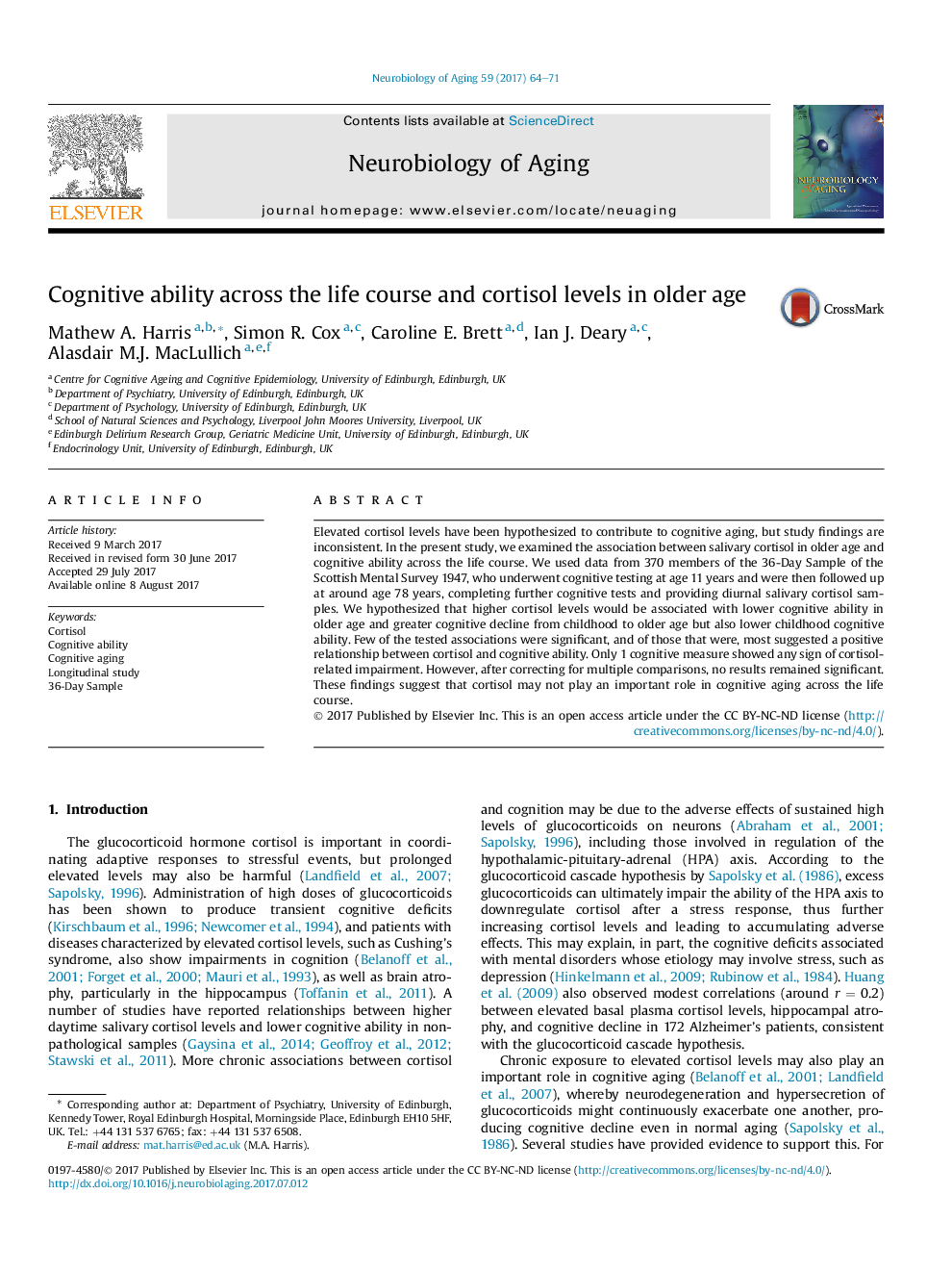ترجمه فارسی عنوان مقاله
توانایی شناختی در طول دوره زندگی و سطح کورتیزول در سنین بالاتر
عنوان انگلیسی
Cognitive ability across the life course and cortisol levels in older age
| کد مقاله | سال انتشار | تعداد صفحات مقاله انگلیسی |
|---|---|---|
| 158075 | 2017 | 8 صفحه PDF |
منبع

Publisher : Elsevier - Science Direct (الزویر - ساینس دایرکت)
Journal : Neurobiology of Aging, Volume 59, November 2017, Pages 64-71
ترجمه کلمات کلیدی
کورتیزول، توانایی شناختی، پیری شناختی، بررسی طولی، نمونه 36 روزه،
کلمات کلیدی انگلیسی
Cortisol; Cognitive ability; Cognitive aging; Longitudinal study; 36-Day Sample;
ترجمه چکیده
سطح کورتیزول افزایش یافته است که به پیری شناختی کمک می کند اما یافته های تحقیق متناقض است. در مطالعه حاضر، ارتباط بین کورتیزول بزاق در سنین بالاتر و توانایی شناختی در طول عمر مورد بررسی قرار گرفت. از داده های 370 نفر از نمونه 36 روزه تحقیقات روانی اسکاتلند 1947 که در سن 11 سالگی تحت آزمون شناختی قرار گرفتند، از 370 نفر استفاده شد و پس از آن در سن 78 سالگی پیگیری شد، آزمون های شناختی بیشتری را انجام داد و نمونه های کورتیزول خوراکی روزانه را فراهم کرد. ما فرض کردیم که سطوح بالاتر کورتیزول با توانایی شناختی پایین تر در سن بالاتر و کاهش شناختی بیشتر از دوران کودکی تا سن بالاتر، و همچنین توانایی شناختی پایین تر از کودکی همراه است. تعداد کمی از انجمن های آزمایش شده معنی دار بود و بیشترین آنها ارتباط مثبت بین کورتیزول و توانایی شناختی را نشان دادند. فقط 1 معیار شناختی هر نشانه ای از اختلال مربوط به کورتیزول را نشان داد. با این حال، پس از اصلاح مقایسه های متعدد، هیچ نتیجه ای نداشت. این یافته ها نشان می دهد که کورتیزول ممکن است نقش مهمی در پیری شناختی در طول زندگی نداشته باشد.

